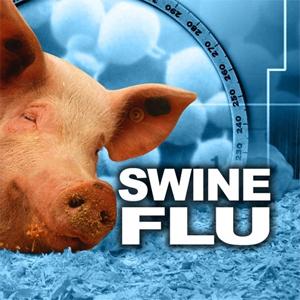Delaware flu case likely related to contact with pigs at county fair in Maryland
The Delaware Division of Public Health recently announced the state's first laboratory-confirmed case of a variant influenza virus (in this instance H3N2v) in a female Sussex County resident under age 18, who had close contact with pigs at a county fair in Maryland. The case is mild and the individual is recovering. No additional information will be released on the individual to protect her privacy.
Any individual who visited a Maryland county fair within the last seven to 10 days, had contact with pigs, and has developed flu symptoms after their last exposure, should call their medical provider to discuss the potential need for a flu test.
When an influenza virus that normally infects pigs is found in people, it is called a "variant" influenza virus. While it is not possible to determine exactly where the individual contracted the variant flu, commonly known as the "swine flu," the Maryland Department of Agriculture has been investigating the appearance of this virus in pigs at the fairs in Charles and Frederick counties. The Delaware resident reportedly had close contact with pigs at the Anne Arundel County Fair, and the Maryland Department of Health has announced presumptive positive cases of variant flu in Maryland residents who had close contact with pigs at the Anne Arundel County Fair as well.
Most commonly, human infections with swine flu occur in people who have been exposed to infected pigs (e.g., children handling pigs at agricultural fairs or workers in the swine industry). Illnesses associated with variant influenza virus infections are usually mild with symptoms similar to those of seasonal flu, including fever and respiratory symptoms, such as sore throat and cough. While rare, limited human-to-human transmission of this variant also has occurred in the past, and such viruses should be taken seriously. The treatment recommendations are the same as for seasonal flu.
Individuals at higher risk for complications of influenza should consider avoiding exposure to pigs and swine barns, especially where sick pigs have been identified. The Centers for Disease Control and Prevention recommend that individuals not at high risk for complications wash hands often with soap and running water before and after exposure to pigs. If soap and water are not available, use an alcohol-based hand rub. For more recommendations, go to https://www.cdc.gov/flu/swineflu/variant/preventspreadfactsheet.htm.
DPH urges all Delawareans 6 months of age and older to get vaccinated from the flu. In Delaware, DPH will host a free, large-scale drive-through flu clinic from 6 a.m. to 6 p.m., Tuesday, Oct. 10, in front of the DelDOT Administration Building on Route 113 South, 800 Bay Road, Dover.
The flu is easy to transmit from person to person. Since it takes about two weeks after vaccination for antibodies that protect against influenza virus infection to develop in the body, Delawareans are encouraged to get vaccinated before influenza begins spreading in their community.
Last flu season, Delaware had over 4,500 confirmed flu cases, 15 of which were fatal. The new flu season starts in October.
Flu symptoms come on suddenly, and include fever, cough, sore throat, runny or stuffy nose, headaches and body aches, and fatigue. Some people get complications including pneumonia, bronchitis, and sinus and ear infections. Providers can prescribe antiviral medicines to make the illness milder, hasten recovery, and prevent serious complications, hospitalizations, and even death.
Delawareans can prevent the spread of the flu and other respiratory illness with good hygiene: wash hands often with soap and water, use hand sanitizer with 60 percent alcohol, and cover coughs and sneezes with a tissue or aim for their inner elbow. Stay six feet away from others who are coughing or sneezing, and avoid touching eyes, nose, or mouth. Those with flu-like illness should stay home from work, school and other gatherings and not return until free of fever without the use of fever-reducing medications for at least 24 hours.
Swine flu cannot be contracted from eating cooked pork products. For more information about influenza in swine or other animals, contact the Delaware Department of Agriculture's Poultry and Animal Health Section at 302-698-4500 or 800-282-8685.
To find a nearby flu clinic or vaccination site, go to www.flu.Delaware.gov for a list of DPH clinics or Google "CDC flu finder," enter a ZIP code and find nearby sites offering vaccinations.





















































